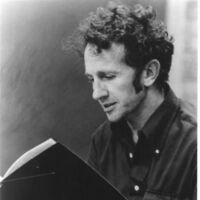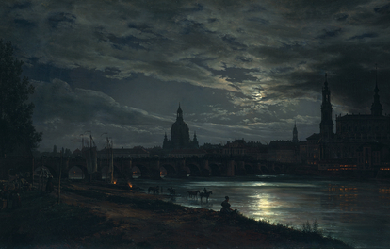Black Stone on Top of Nothing
Still sober, César Vallejo comes home and finds a black ribbon
around the apartment building covering the front door.
He puts down his cane, removes his greasy fedora, and begins
to untangle the mess. His neighbors line up behind him
wondering what’s going on. A middle-aged woman carrying
a loaf of fresh bread asks him to step aside so she
can enter, ascend the two steep flights to her apartment,
and begin the daily task of preparing lunch for her Monsieur.
Vallejo pretends he hears nothing or perhaps he truly
hears nothing so absorbed is he in this odd task consuming
his late morning. Did I forget to mention that no one else
can see the black ribbon or understand why his fingers
seem so intent on unraveling what is not there? Remember
when you were only six and on especially hot days you
would descend the shaky steps to the cellar hoping at first
that someone, perhaps your mother, would gradually
become aware of your absence and feel a sudden seizure
of anxiety or terror. Of course no one noticed. Mother
sat for hours beside the phone waiting, and now and then
gazed at summer sunlight blazing through the parlor curtains
while below, cool and alone, seated on the damp concrete
you watched the same sunlight filter through the rising dust
from the two high windows. Beside the furnace a spider
worked brilliantly downward from the burned-out, overhead bulb
with a purpose you at that age could still comprehend.
1937 would last only six more months. It was a Thursday.
Rain was promised but never arrived. The brown spider worked
with or without hope, though when the dusty sunlight caught
in the web you beheld a design so perfect it remained
in your memory as a model of meaning. César Vallejo
untangled the black ribbon no one else saw and climbed
to his attic apartment and gazed out at the sullen rooftops
stretching southward toward Spain where his heart died. I know this.
I’ve walked by the same building year after year in late evening
when the swallows were settling noiselessly in the few sparse trees
beside the unused canal. I’ve come when the winter snow
blinded the distant brooding sky. I’ve come just after dawn,
I’ve come in spring, in autumn, in rain, and he was never there.


